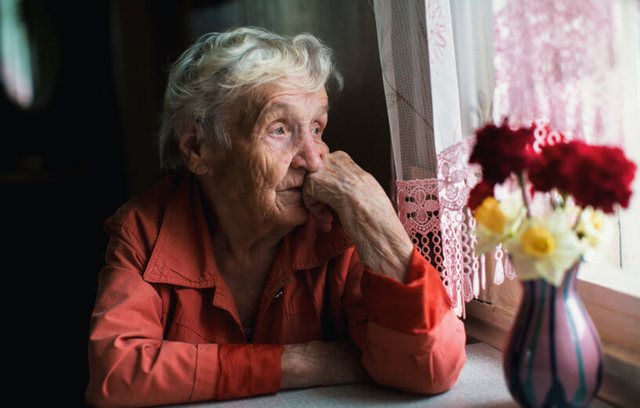
Loneliness can have a negative mental and physical effect on anyone. But its impact on the elderly is well-documented. Previous studies have found that loneliness can not only lead to mental health problems, but can even cause the onset of diseases such as dementia.
Now a new study has found that the feeling of loneliness in old age can shorten the lives of many people. The report from Duke-NUS Medical School in Singapore, finds that adults over the age of 60 who say they sometimes or always feel lonely die up to 5 years faster than seniors who do not feel lonely.
"We found that lonely seniors can expect to have a shorter life than their peers who do not perceive themselves as lonely," said study lead author / assistant professor / professor Rahul Malhotra.
"Apart from being the year associated with coronavirus disease, 2019 was also the time when the number of adults over the age of 30 accounted for the first time in recorded history for half of the total global population, marking the beginning of an increasing world old.
As a result, loneliness among the elderly has become a matter of public and social health concern, ”added Associate Professor Angelik Chan, Executive Director of the Duke-NUS Center for Aging Research.
The authors of the study add that the results of this study, are just in time due to home stay messages and social distance that keep many elderly due to the coronavirus pandemic.
The study finds that people in their 60s who say they are lonely for a while or all the time have a life expectancy that is 3-5 years shorter than their peers. For those who feel lonely and are at the age of 70, life expectancy is shortened by 3-4 years.
For those in their 80s, loneliness reduces life expectancy by 2-3 years. The study also finds that seniors who feel lonely experience declines in other health parameters for the rest of their lives.
This includes the remaining years and the remaining years, they believe they will be able to do their daily activities without restrictions. Like overall life expectancy, adults in their 60s, 70s, and 80s saw a decline in these parameters when they perceived themselves lonely at least in some cases.
But does culture play a role in loneliness? Researchers say the findings are particularly important in countries like Singapore, which they describe as having a "collectivist" culture and a rapidly aging population. Since communication between people there is more important than elsewhere, the study authors say being alone has a more detrimental effect than in countries that are more "individualistic."
Moreover, a 2016 report - Transitions in Health, Employment, Social Engagement and Intergenerational Transfers (THE SIGNS) - found that 34 per cent of Singapore senior citizens consider themselves lonely. That percentage rose to 40 percent among those who were 80 years old or older.
"The findings of our study highlight the impact of loneliness on the health of the population, and the importance of identifying and managing it in the elderly," says Malhotra. In 2018, the UK launched a national strategy to tackle loneliness.
Meanwhile this year Japan created the Ministry of Loneliness, which will deal specifically with this problem. / studyfinds - bota.al





